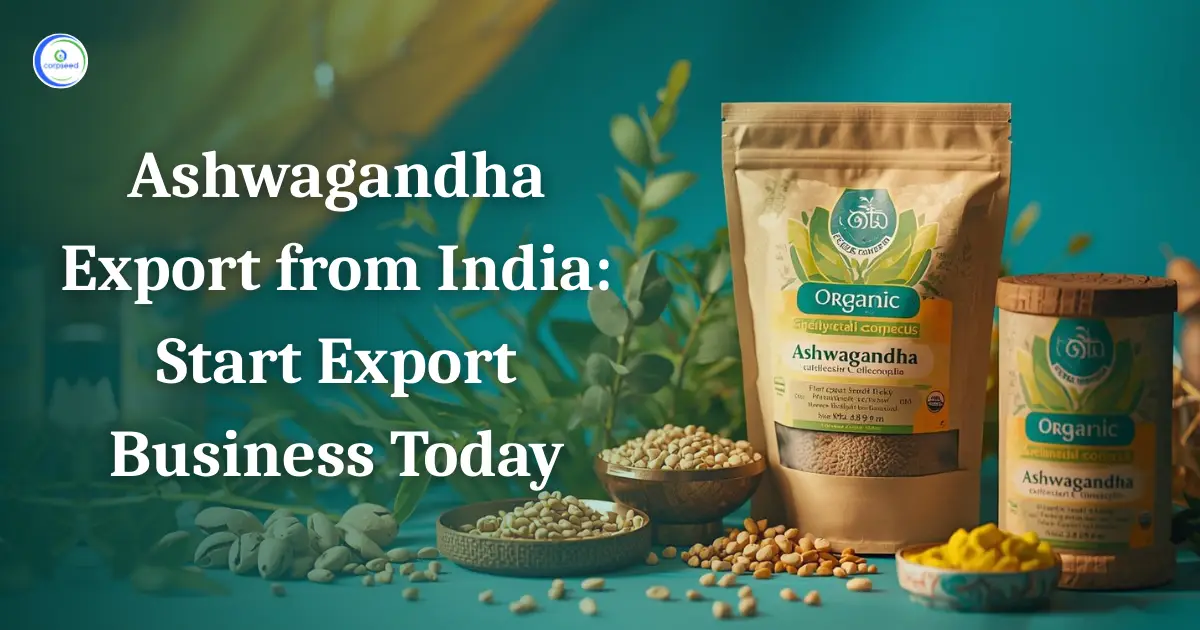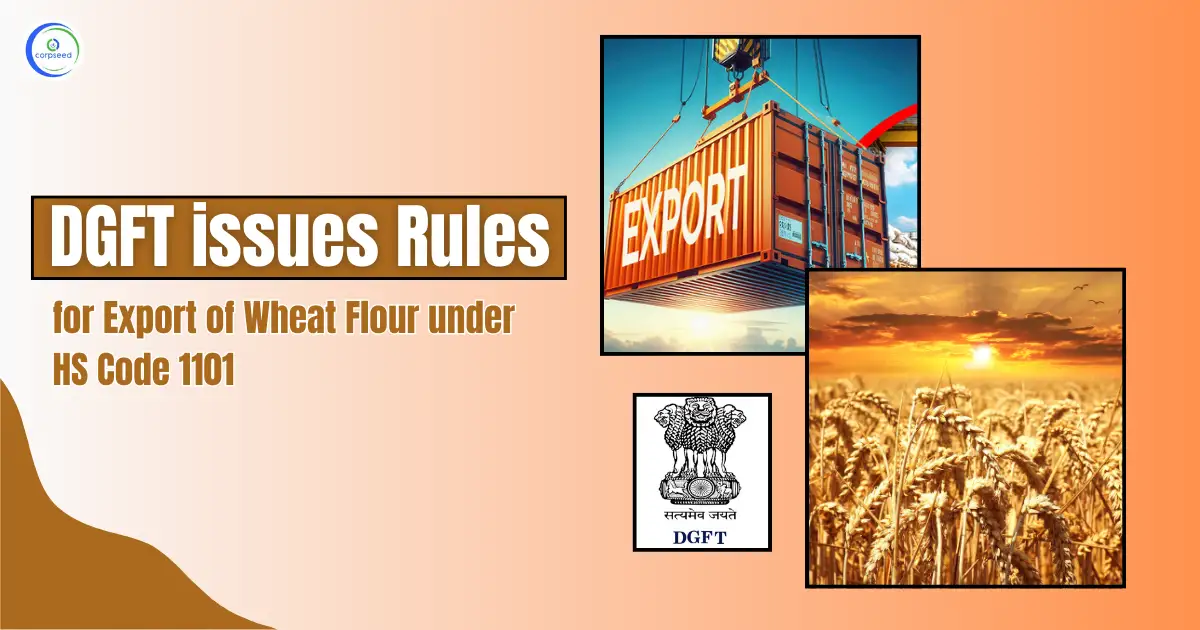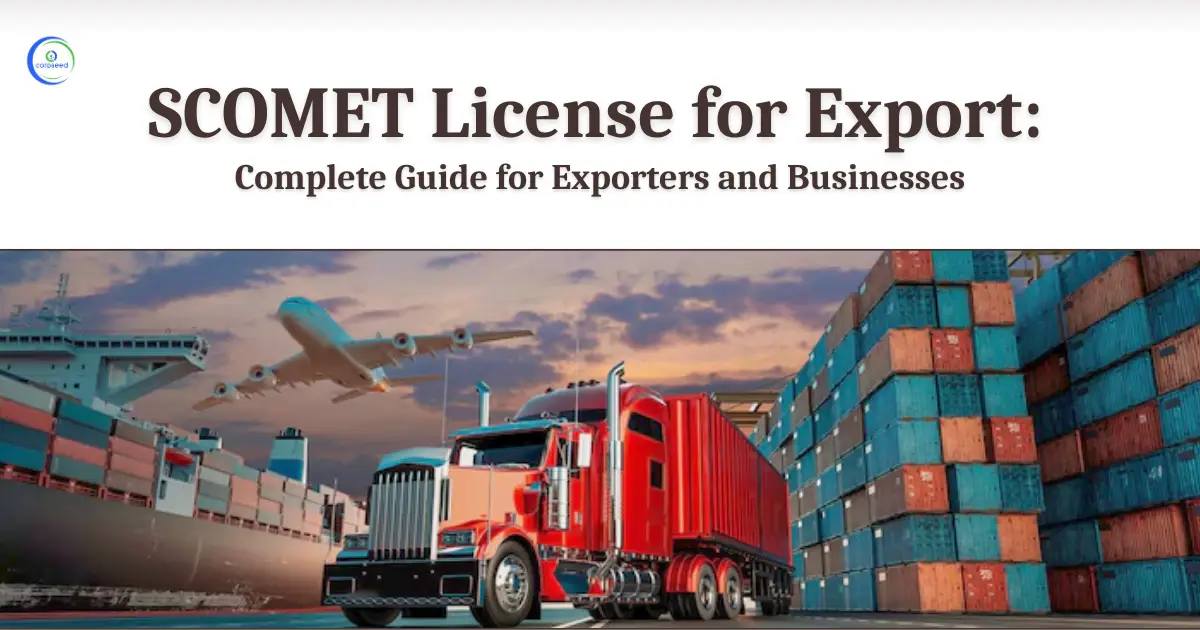Introduction: Cereals
In this Blog, we will discuss the procedure for exporting cereals from India. Before starting with the process and required mandatory compliances for export. We must understand what are cereals and their importance in human life. India is a prominent exporter of cereals because they are also cultivated commercially in countries such as India, China, and Indonesia. So, we will be discussing the procedure for the same. Hence, this blog will be informative for all the entrepreneurs who want to export cereals and products made from cereals India.
Table of Contents
- Introduction: Cereals
- What Are Cereals?
- Mandatory Licenses And Certifications Are Required To Export Cereals From India
- Important Documents Required For FSSAI Central Registration For Manufacturer-Exporter
- Important Documents Required For The NPOP Accreditation
- How Can Cereals Be Exported From India?
- Market Demand For Cereals In The World
- Conclusion
--------------Blog Contact Form-------------
What Are Cereals?
Cereals are grass-cultivated for the edible components of their grain. Cereals are produced in large quantities in countries like India. Also, they provide a good amount of food worldwide compared to other crops. Furthermore, cereals are rich in carbohydrates, vitamins, proteins, and minerals that are equivalent to wheat. The important cereals amount consumed in the world includes corn, wheat, rye, rice, oats, and maize these cereals are considered to be highly nutritious and contain many health benefits. Also, it's a good source of dietary fiber, vitamins A, C, B6, and B12, calcium, and other minerals.
Mandatory Licenses And Certifications Are Required To Export Cereals From India
- FSSAI Central:- FSSAI is the mandatory license to have for exporting food items from India to countries all over the world. FSSAI- Food Safety and Standards Authority of India is the agency responsible for the nationwide food industry in India. It ensures that each food product receives an appropriate quality check. Any Business operators or FBOs establish the guidelines for operating a food business throughout India. FSSAI Central license is issued to those whose annual turnover of the business is more than 20 crore and who operate their business in more than one state.
- NPOP (The National Program For Organic Production) Certificate:- NPOP certification provides standards for organic production, system, criteria, and procedure for accreditation of certification bodies. The standards and procedures have been formulated in harmony with other International Standards regulating the export and import of organic products. It is governed and regulated by the Agricultural and Processed Food Products Export Development Authority (APEDA) Under the Ministry of Commerce and Industry.
- GST Registration:- Goods and services tax (GST), Person who is starting a new business start-up GST registration is mandatory for them. If the organization carries on business without registering under GST, it is an offense and heavy penalties will apply to the person.
- IEC Code:- IEC code is an import-export code for the business identification number which is mandatory for the export from and import into India. In India, No export or import shall be made without obtaining an IEC code unless specifically exempted. IEC code may be applied on behalf of the firm can be a proprietorship, LLP, Limited company, trust, etc.
- MSME Registration:- The ministry of micro small and medium enterprises is authorized to Register MSME for the formulation and administration of rules and regulations.
Important Documents Required For FSSAI Central Registration For Manufacturer-Exporter
- List of Directors with full address and contact details (Compulsory for companies only).
- IE CODE document issued by DGFT.
- Upload Production unit photograph.
- Undertaking for Exporting FBO.
- Blueprint/layout plan of the processing unit showing the dimensions in meters/square meters and operation-wise area allocation.
- Name and List of Equipment and Machinery along with the number, installed capacity, and horsepower used.
- Photo I.D and address proof issued by the Government authority of Proprietor/Partner/Director(s)/Authorized Signatory.
- Proof of possession of premises. (Sale deed/ Rent agreement/ Electricity bill, etc.).
- Partnership Deed/Self Declaration for Proprietorship/Memorandum & Articles of Association towards the firm's constitution.
- Form IX: Nomination of Persons by a Company and the Board Resolution.
Note: In case of water is groundwater then NOC from CGWA is necessary to be submitted accordingly
Note: It is to note that the Exporting FBO shall have to provide the information for each product.
Important Documents Required For The NPOP Accreditation
Below mention are the list of documents required for the NPOP Certification
- Memorandum of Company, Association, and trust (MOA)
- Application in the prescribed format by APEDA.
- Copy of registration certificate indicating company legal status
- Audited balance sheet
- Accreditated fees
- A Copy of the operational and quality manual as per ISO 17065 standard.
- Organizational structure
- Authority letter from the organization of the person assigning authority.
How Can Cereals Be Exported From India?
- Acquire the necessary tax registrations such as GST and PAN.
- Acquire the import and export permit from DGFT (Directorate general of foreign trade).
- Set up infrastructure and talk to the customs agents to make sure of the customs clearance and handling.
- Note the important licenses that are required. Also, analyze the other country’s food laws.
- Apply for FSSAI registration and NPOP (National program for organic production).
Market Demand For Cereals In The World
The market demand for cereals was valued at $90.9 billion in 2020, and it is about to reach $ 180.03 billion by the year 2030. Most people from the UK, Australia, and North America prefer to take cereals in their breakfast in the form of cornflakes, oats, and quinoa. It is considered one of the best and most healthy breakfasts. Also, cereals are ready-to-eat items. As we all know, nowadays people are very much concerned about their healthy lifestyle for their mental as well as physical well-being the body. Hence, this will lead to an increase in market demand for cereals not only in India but also in other countries.
Conclusion
In this Blog, we have talked about the export procedure of cereals (Organic products) from India. To start this business an applicant requires some licenses and certifications. Also, there is a designed procedure for the same which an applicant needs to follow for hassle-free registration for the export of cereals from India. In the blog, we have discussed the licenses that are required for exporting as well as the registration procedure to get the licenses. CORPSEED will help you in getting the license and advise you on the procedure for obtaining the same. I hope, this article will give you insights into the exports of cereals. If you need any further information related to this you can visit our website CORPSEED
This portion of the site is for informational purposes only. The content is not legal advice. The statements and opinions are the expression of author, not corpseed, and have not been evaluated by corpseed for accuracy, completeness, or changes in the law.
BOOK A FREE CONSULTATION
Get help from an experienced legal adviser. Schedule your consultation at a time that works for you and it's absolutely FREE.

_copy.jpg)



_Corpseed.webp)


_Rules,_2025_Corpseed.webp)
